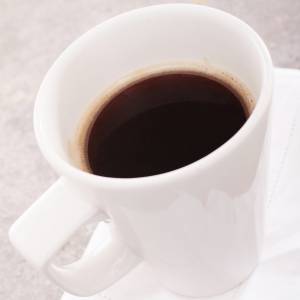Ordering Kopi in Singapore

Despite the country’s British colonial roots and the Chinese population majority, coffee is the drink of choice for many here in Singapore instead of tea. When it comes to rebooting the brain in the morning, or postponing that post-lunch sleep, coffee is certainly invaluable. The recent mushrooming of cafes in Singapore have certainly helped to cement the hip factor of the drink.
While many may joke that Starbucks is everywhere, kopi is even more ubiquitous in Singapore as it is sold in every coffeeshop, thereby ensuring that you’d never have to go too far in search of a good drink. The word kopitiam, combines the Malay term for ‘coffee’ with the Hokkien ‘tiam’ which means ‘shop’, and is in itself, a reflection of the varied and diverse cultures here in Singapore.
Today, these heartland kopitiams continue to spring up near HDB housing estates, and draw people from all races and backgrounds who are looking for a clean and cheap place to have a good chat with a friend, a satisfying meal or even just to unwind and watch the latest episode in a Hong Kong drama serial.
What’s special about kopi?
Isn’t this just a regular cup of coffee, we hear some of you demand. What makes it so different? Well, the main difference between coffees usually boils down to the coffee beans used. For instance, you may have noticed that expensive coffee often advertises the beans to be ‘100% Arabica’. Arabica beans are widely acknowledged to be superior to the other main coffee species: Robusta. The latter has a stronger and bitterer taste that is largely caused by the high caffeine content contained in the beans. Arabica is almost always preferred to Robusta, and command a higher price as the species is harder to cultivate.
If these Robusta beans taste so bad, why do you continue to use them in kopi?
That’s because we are cold pragmatists at heart who simply desire a cheap caffeinated kick in the morning. This trait was carried down from our coolie forefathers who were perfectly happy to imbibe this bitter drink regularly for its magical revitalising properties. Till today, you will hear people ordering not just a regular cup of kopi (which contains nearly twice the amount of caffeine in comparison to the same volume of coffee made of Arabica beans), but asking for it to be especially thick and bitter. It’s like our local version of Redbull.
So the drink is repulsive, but people continue to drink it?
Well, that’s about 50% correct. You see, a long time ago, a clever person in Singapore realised that the burnt rubber taste of terrible beans could be easily disguised with the use of sweet, creamy condensed milk. Once this ingredient has been added, kopi magically becomes a deliciously sweet and aromatic drink that goes down smoothly.
Alright, how do I get my kopi done just the way I like it?
You may have noticed that the people ahead of you in queue don’t even seem to be speaking English. You gave the drinks store assistant your most winning smile and your best effort in Mandarin, but he didn’t really seem to understand you either. What is this alien tongue and how may it help you to procure your desired brew?
Firstly, understand that Singlish is a hodgepodge of many other languages, and that there’s a secret coffee code in Singapore. When you order a kopi, you’re simply asking for coffee—but what’s served is actually coffee with a lashing of condensed milk. ‘O’ means ’black’ in Hokkien, ‘Kosong’ means ‘zero’ in Malay, and ‘C’ stands for Carnation—a brand of evaporated milk. ‘Gau’ means thick and ‘Poh’ means ‘thin’. ‘Gah Dai’ is a request for extra condensed milk, while ‘Siu Dai’ is a request for less sugar. The literal meanings of these words may not, however, translate exactly into a perfect cup of coffee. Seeing as ‘dai’ actually just means ‘sweet’, while ‘Gah’ and ‘Siu’ just mean ‘more’ and ‘less’ respectively, we’re just as baffled as to how we came up with these precise coffee formulas below.
|
Name |
What you’re ordering |
|
Kopi |
Coffee with condensed milk |
|
Kopi-Gau |
Strong coffee with condensed milk |
|
Kopi-Poh |
Weak coffee with condensed milk |
|
Kopi-C |
Coffee with evaporated milk and sugar |
|
Kopi-O |
Black coffee with sugar |
|
Kopi-C-Gah-Dai |
Coffee with evaporated milk and extra sugar |
|
Kopi-C-Siu-Dai |
Coffee with evaporated milk and less sugar |
|
Kopi-C-Siu-Dai-Gau |
Strong coffee with evaporated milk and less sugar |
|
Kopi-C-Kosong |
Black coffee with evaporated milk and no sugar |
|
Kopi-O-Kosong |
Black coffee with no sugar |
|
Kopi-O-Kosong-Poh |
Weak black coffee with no sugar |
Don’t worry about making a fool of yourself, and experiment with different drink combinations as often as possible, and you’d soon be ordering kopi like a pro!
17 May 2018Rayne
